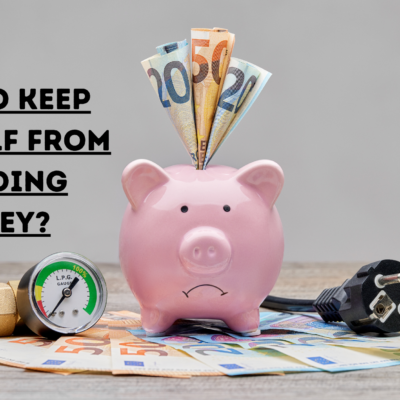How to Keep Yourself From Spending Money: We are living in a world that is filled with tempting purchases and the constant attraction of consumerism. But mastering the art of stopping yourself from spending money is a valuable skill. Learning how to fight sudden spending and adopting a mindful strategy for your finances can lead to long-term financial well-being. (How to Keep Yourself From Spending Money)
Also Read:
- Tips for Achieving Financial Resolution.
- Financial Planning for Small Business Owners.
- What Are the Best Ways to Get Rich as a Teenager?
- How to Get Paid For Creative Ideas?
- Better Financial Habits to Adopt This Year.
How to Keep Yourself From Spending Money?
Create a Budget
The basis of reliable financial management lies in creating a budget. Start by evaluating your income and organizing your expenses. A well-planned budget permits you to assign funds for needs, savings, and discretionary spending. Regularly review and modify your budget based on your financial goals and any changes in your income or expenses.
Determine Your Financial Goals
Setting clear financial goals delivers a purpose for your savings efforts. Whether it is saving for a vacation, building an emergency fund, or paying off debt, having defined objectives can help you prioritize your spending. If you are tempted to make a purchase, consider whether it aligns with your long-term financial goals or not.
Understand the difference between Your Wants And Needs
A key part of stopping unnecessary spending is differentiating between wants and needs. While some expenses are necessary for survival, many purchases are pushed by desire and not necessity. Before making a purchase, ask yourself if it meets your needs or if it’s a want. This deliberate decision-making process can help control impulsive spending.
Develop a Minimalist Mindset
Adopting a minimalist lifestyle can be a powerful treatment for making impulse purchases. Declutter your living space and adopt the principle of “less is more.” When you have fewer possessions, you are less likely to feel the necessity to continuously buy new things. Concentrate on the value of experiences and relationships over material possessions.
Practice Resisting Immediate Purchase
Resist the urge for immediate satisfaction and instead opt for long-term benefits. When confronted with the temptation to spend impulsively, give yourself time to reflect. To deal with this, you can set a rule, such as waiting 24 hours before making non-essential purchases. This period allows you to find out the necessity and impact of such a purchase.
Create a No-Spend period
Challenge yourself to be mindful of spending by engaging in a no-spend challenge. Set a specific duration every month or week when you will be committed to spending only on essential items. This exercise not only helps you recognize unnecessary expenses but also builds discipline and awareness around your spending habits.
Set an Emergency Fund
Building an emergency fund is an important step in financial stability. Knowing you have a safety net for unexpected expenses decreases the chances of making impulsive spending when confronted with emergencies. Aim to set aside three to six months’ worth of living expenses in your emergency fund.
Utilize Cash Envelopes
A substantial way to control your spending habits is by using cash envelopes. Allot a specific amount of cash for categories like groceries, entertainment, or dining out. Once the cash is over, resist the temptation to dip into other envelopes. The physicality of cash can make spending more tangible, promoting a greater awareness of your financial options.
Follow DIY and Homemade Alternatives
Explore do-it-yourself (DIY) and homemade alternatives as a means of saving money. You can cook meals at home, create handmade gifts, or repair items instead of replacing them, embracing a more hands-on process not only decreases expenses but also adds a sense of achievement.
Negotiate if Possible
Before making a purchase, research prices, compare options, and look for discounts or promotions. Negotiate whenever it is possible, especially for important expenses. Additionally, consider buying second-hand items to save money without compromising quality.
Uninstall Any Unnecessary Shopping Apps
In the digital age, marketing, and advertisements constantly bombard us with exciting offers. Take control of yourself by unsubscribing from promotional emails and unfollowing tempting online shops on social media. Limiting your exposure to marketing materials decreases the chance of succumbing to impulse purchases.
Track Your Expenses
Maintain a clear record of your expenditures to gain insight into your spending patterns. Use budgeting apps or simple spreadsheets to organize and analyze your expenses. Regularly reviewing your spending habits lets you identify areas where you can cut back and make knowledgeable financial decisions.
Participate in Free Activities
Entertainment activities can usually contribute greatly to unrestricted spending. Explore free options such as hiking, attending community events, or enjoying public spaces like parks and museums. Finding joy in low-cost or no-cost activities can be a fulfilling and budget-friendly way to spend your time.
Ask For Support
Share your financial goals with friends or family who can provide support and make you more responsible. Having a support system can make your journey towards saving more enjoyable and achievable.
At The End
Mastering the art of saving is a journey that needs self-awareness, discipline, and a commitment to long-term financial well-being. The strategies mentioned in this article push you to take control of your finances.








